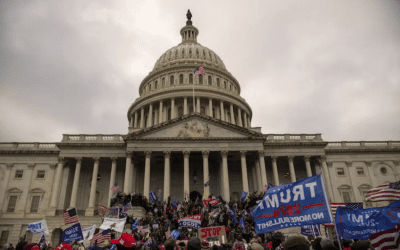President Donald Trump has a loyal base of support among the Evangelicals, Observant Catholics, and Tea Party who form 70 percent of the party, and only a few brave elected Republicans are likely to oppose him. But strong anti-Trump fractures run through the remaining blocs of McCain conservatives and moderates, both those who identify with the party and those who have left it, and even some Trump loyalists. So, it should not be surprising that 10 to 15 percent of Republicans in current polls support impeachment or vote for a 2020 Democratic candidate or a third party candidate. And if that endures or grows, these trends represent a mortal threat to President Trump in 2020.
While Trump has pushed the proportion of McCain conservatives and social liberal moderates in the party down from 41 to 30 percent, the remaining GOP voters have become much more assertive about their doubts about the president. After three years of President Trump’s tweets and perceived impulsiveness and divisiveness, Republican doubters are much more willing to raise and defend their criticism, even in a small room with fellow Trump voters. It is as if their doubts have been building through three years of watching President Trump and uncomfortable conversations in their families and at work – and suddenly, they say, “don’t get me wrong,” and blurt out their issue.
They also watched long segments of the president’s rallies, press availabilities outside the White House, and the State of the Union only affirm what they already thought. He talks nobody back from their doubts, but instead, confirms that the polarization will only continue. Watching Trump leaves even his supporters worried, not excited, about the next stage of the Trump project.
Events have left one or two in every group of eight participants waiting to hear more about the impeachment investigation. Some say it is reassuring to see a formal constitutional, “checks and balances” in play.
These results are based on focus groups Democracy Corps conducted in late October; including two groups in Phoenix, AZ, with secular conservative women and with independent men voting 3 rd party in 2020; two groups in Southfield, MI, with moderate Republican women and with conservative Catholic women; two groups in Charlotte, NC, with moderate former Republican women and with Tea Party supporter men.
They provide new insights into the dynamics of the Republican Party and its factions under President Trump, and the growing worry about the divisiveness and even disagreement on immigration and Trump’s view of a multicultural and immigrant America, health care and the Affordable Care Act, deficits, gun violence, climate change, and obeying the law.





